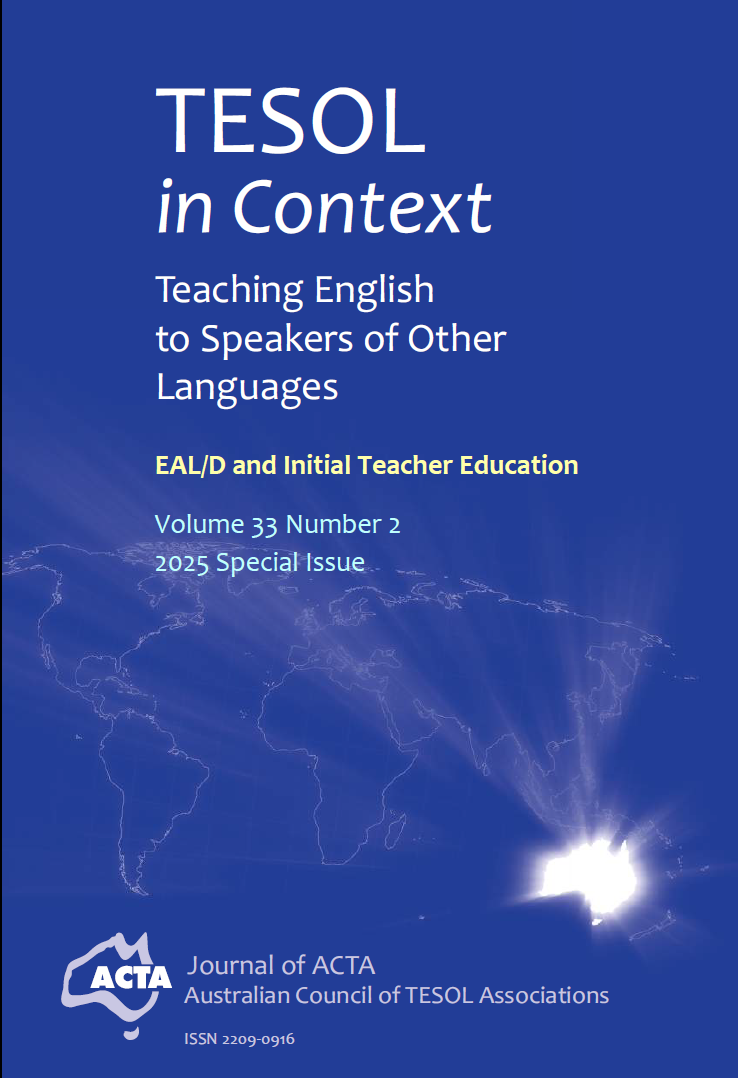To what extent do Australian universities offer dedicated units to prepare pre-service teachers to support EAL/D learners?
DOI:
https://doi.org/10.21153/tesol2025vol33no2art2108Keywords:
Initial Teacher Education (ITE), pre-service teachers, English as an Additional Language and/or Dialect (EAL/D), multilingual learners, Australian classrooms, teacher standardsAbstract
Framed by social justice perspectives, in this article, we present our findings from an audit of Initial Teacher Education (ITE) degrees offered by Australian universities. The purpose is to establish which degrees (and universities) offered dedicated English as an Additional Language and/or Dialect (EAL/D) units that explicitly and solely focus on EAL/D learning and teaching, as core units or elective units, or as a specialisation for secondary ITE courses. To do this, we analysed the publicly available unit titles and descriptions on university websites for 37 Australian universities, representing 215 undergraduate and postgraduate ITE degrees in early childhood, primary and secondary education offered in 2024 and the beginning of 2025. The data were categorised using an EAL/D unit identification tool that we developed. Our findings show that while some universities are preparing teachers to support the EAL/D learners in their classrooms, many are not. This is tied to the accreditation process for ITE degrees and the role that the Australian Institute for Teaching and School Leadership (AITSL) teacher standards play. Given the clear need, this lack of recognition and failure to adequately allocate resources towards meeting the needs of EAL/D learners is a social justice issue, and we end with a plea for change in this area.
Downloads
Published
Issue
Section
License
Copyright (c) 2025 TESOL in Context

This work is licensed under a Creative Commons Attribution-ShareAlike 4.0 International License.






